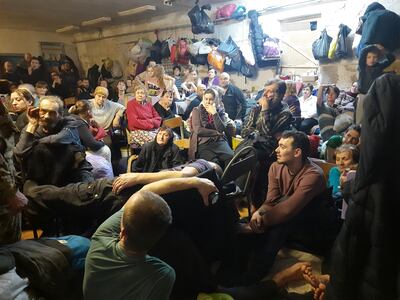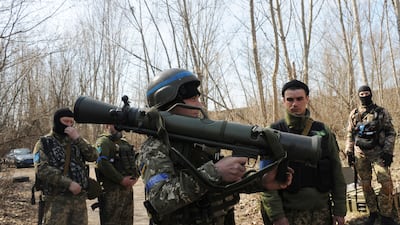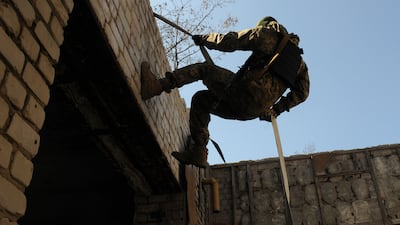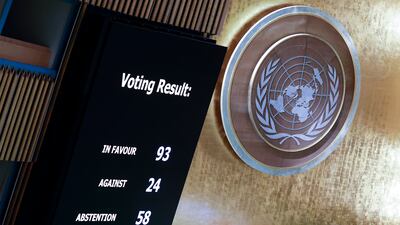Nato countries are ready to send weapons into Ukraine for years to come, the military alliance chief Jens Stoltenberg said.
Six weeks into the war, and with mounting civilian and army casualties, Ukrainian Foreign Minister Dmytro Kuleba this week urged members of the transatlantic union to send “weapons, weapons, weapons” to help his people defend themselves against the Russian invaders.
Mr Stoltenberg told BBC Radio 4’s Today programme that Nato allies would not shrink from the call, and suggested more advanced weaponry could be on the table in future.
Asked if Nato members are prepared to continue arming the Ukrainians in future, he said: “That was the clear message from Nato allies when they met with foreign minister Kuleba in Brussels this week at the foreign ministerial meeting, that we need to be ready to further support Ukraine.”

Nato, as an organisation, refuses to send troops or weapons to Ukraine or impose a no-fly zone to prevent Russia from completely overwhelming its neighbour. Individual member countries have provided anti-aircraft and anti-tank weapons, as well as equipment and medical supplies. The Czech Republic this week shipped tanks, reported to be T-72 models, to Ukraine.
Ukraine has urged Nato states to enhance their weapons donations to include planes, missile defence systems and armoured vehicles.
Mr Stoltenberg declined to be drawn on the specific weapons that are being considered by Nato governments, but said heavier arms were on the table.
“We see all the destroyed Russian armour, we see Ukraine has the ability to shoot down Russian missiles and planes, so we see the effect of what we have provided and our allies are ready to provide even more and also more modern and heavier weapons,” he said.
Nato’s secretary general on Thursday said the war in Ukraine could drag on for years.
The war is being called the worst crisis to hit Europe since the Second World War. As a result, Mr Stoltenberg has agreed to remain in his post until September 2023, a year after his tenure had been due to end.
After discussions with his Nato counterparts, Mr Kuleba said he was cautiously optimistic that some countries would boost weapons supplies. He said those arms needed to get to Ukraine quickly, with Russia expected to attack more widely in east Ukraine.
“Either you help us now, and I’m speaking about days, not weeks, or your help will come too late,” Mr Kuleba said.
Britain and Poland, both Nato members, announced a military co-operation pact that they said would involve co-ordinating weapons supplies to Ukraine and modernising its military from Soviet-era equipment.
“We’ve agreed to step up support for Ukraine and we’ve also recognised that the conflict’s entered a new and different phase with a more concentrated Russian offensive,” British Foreign Secretary Liz Truss said.
“There was support for countries to supply new and heavier equipment to Ukraine so that they can respond to these new threats from Russia. We’ve agreed to help Ukrainian forces move from their Soviet-era equipment to Nato-standard equipment on a bilateral basis,” Ms Truss said.














































